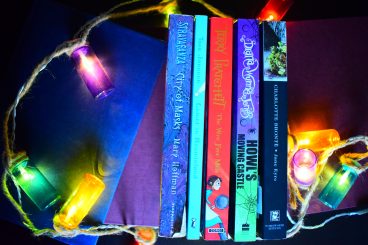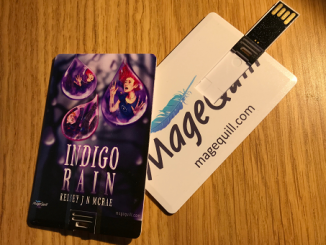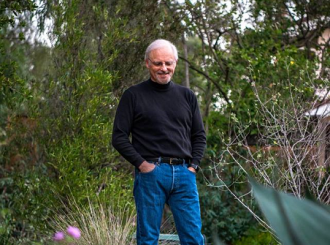World Thesaurus Day Special: Or, My Attempt at a Personal Thesaurus of Indianisms
by Swara Shukla · Published · Updated
I love how interested my friends, peers, and colleagues are in “Indian English”. One of my Creative Writing classmates had commented on the way I wrote my dialogues once, claiming she automatically read them in Indian English. Although I still haven’t really got what she meant by that, the comment got me intrigued enough to look into both my dialogue-writing process and how some of my speech patterns stood out here. It is a rather fun exercise, I must say!
Like most – probably upholding the various Quora threads on the topic – I realise I also am prone to ‘Indianising’ my spoken (and often written) English. An interesting facet of this is the (in)famous “Hinglish” – which I personally love, to be honest (did you know the term has a wikipedia post?!)
So, steering away from my usual melancholic monologues, I decided to do a quick blog-post for World Thesaurus Day to have fun with my own quirks in spoken English, that sometimes are also passed on to my characters.
I write this post with the memory of a date where I had confounded the guy with my increasingly excited usage of “yaar”; for him and everyone who finds some of my patterns amusing and/or confusing, here is my own (veritably self-indulgent but I am having fun) dictionary-cum-thesaurus! These are words that I may already have introduced my friends here to, or will introduce someone to if they were to spend more than an hour talking to me. It’s all about enhancing their vocabulary, you see!
Yaar
noun/exclamation/interjection
Depending on usage, a term of endearment or annoyance, or disbelief or excitement or irritation. Literally translates to “friend” and sentimentally to “oh (wo)man!”.
Yaar, don’t do this to yourself.
What the hell, yaar?
Yaar! What great news!
Syns: Bro, dude, friend, dost, chap, mate, mucher, pal, homie, lad
.
Arre
interjection/exclamation
Pronounced like “a-ray”, a term of exclamation expressing mild surprise or annoyance or emphasis or reiteration. Often coupled with “yaar”. Sometimes used as a milder sentimental equivalent of “what the hell?” or “wtf”.
Arre, what do you mean I asked you to?
Arre yaar, I am telling you, she was the one who burnt it.
Arre?
Syns: What! Why! (And I am out; this is a bit too connotatively and sentimentally singular. But definitely a very common part of my verbal-English lexicon.)
Aunty
noun
Targetted at my workshop group from University of Glasgow, and my eventual editor for the story this word featured extensively in; the Indian-English form of this word is distiguished by the “y” instead of “ie” in the end, and the fact that it is placed after a name. In India, “Aunty” and “Uncle” are generic terms used to address anyone who is elder to you, because relatives have specific terms of address. This is commonplace in my written pattern, especially my stories because they are set in India.
(The aformentioned classmate’s comment makes a bit more sense now, huh.)
Namaste Meena aunty, can I get you some water?
Syns: Mr (Surname), Mister, Ma’am, Sir, Mrs (Surname), Ms (Surname), Miss, Mx
Didi
noun
Another term of address and endearment, this is used for an older sister or for a female who isn’t old enough to be called “aunty”. This term is part of my verbal vocabulary here – and now some close friends’ vocabulary too – because I have a maternal cousin living in Edinburgh and I have a reflexive inability to refer to or address her just by her name.
Nisha didi, let’s go out for dinner today!
Syns: Older sister, elder sister, sister, sis.
Abhi
noun
Literally – “now”. This makes the list because of my inherent, unshakeable tendency to use it in text messages, even when it is perfectly replaceable by its English counterpart in terms of context. Just has a nicer ring to it I guess?
Are you free, abhi?
Syns: Now, right now, at the moment, at this point
Na
Intensifier/Adverb/Adjective
Literally, “no”. In the context of this list, used solely as an emphasis or insistence at the end of a sentence that is framed either as a question or an (excited) excalmation or an insistent request (read: demand). Often used with “Arre” to add to the emphasis of the sentence. The word is purely sentimental because I personally think the sentences it occurs in can stand complete on their own.
I haven’t seen my flatmates since they moved out.
Arre, invite them to the karoake, na!
Please come with me to the club, na?
Syns: (“no” doesn’t quite cut it for me but didn’t want to leave this space blank because, Thesaurus Day and all that.)












